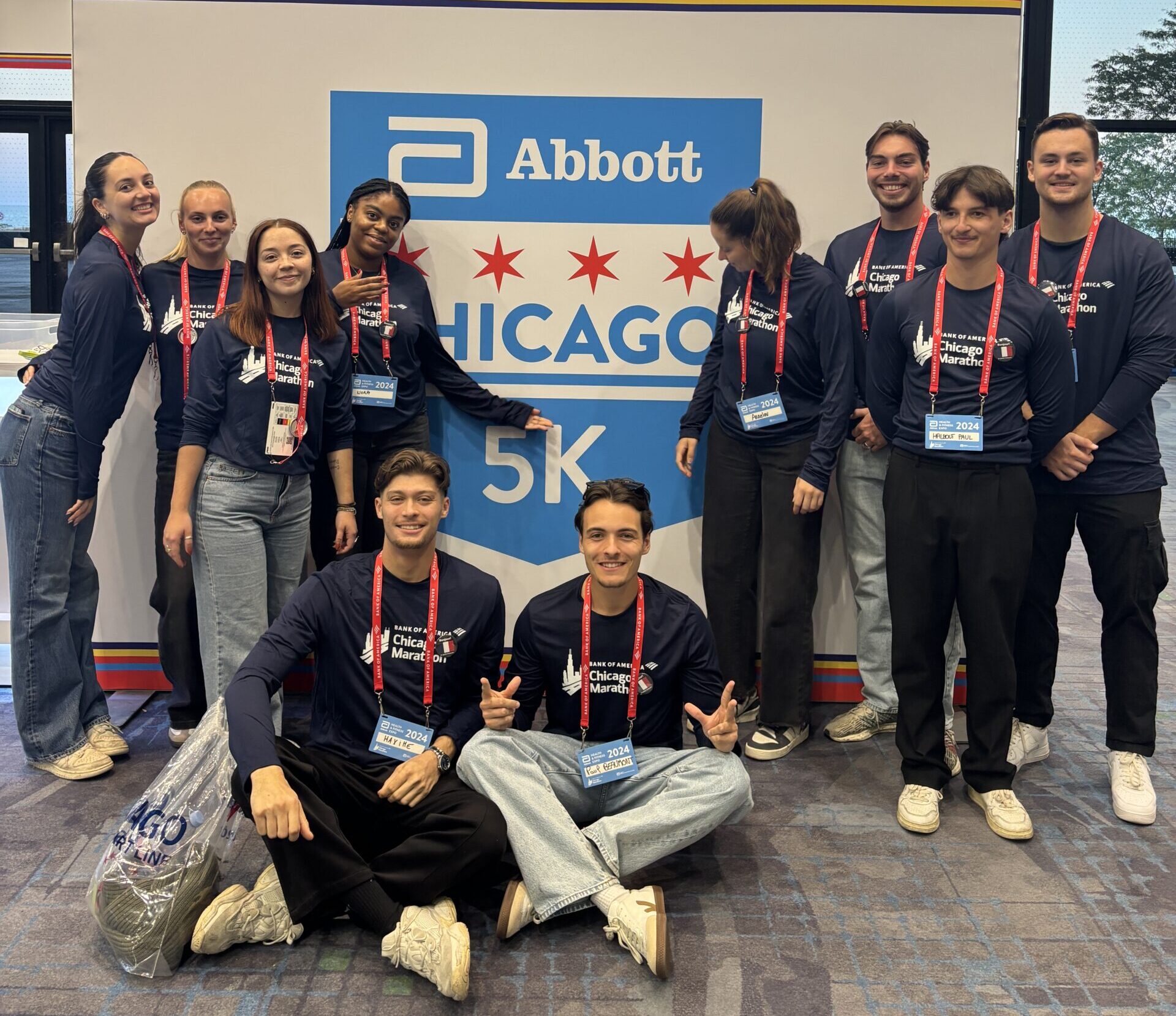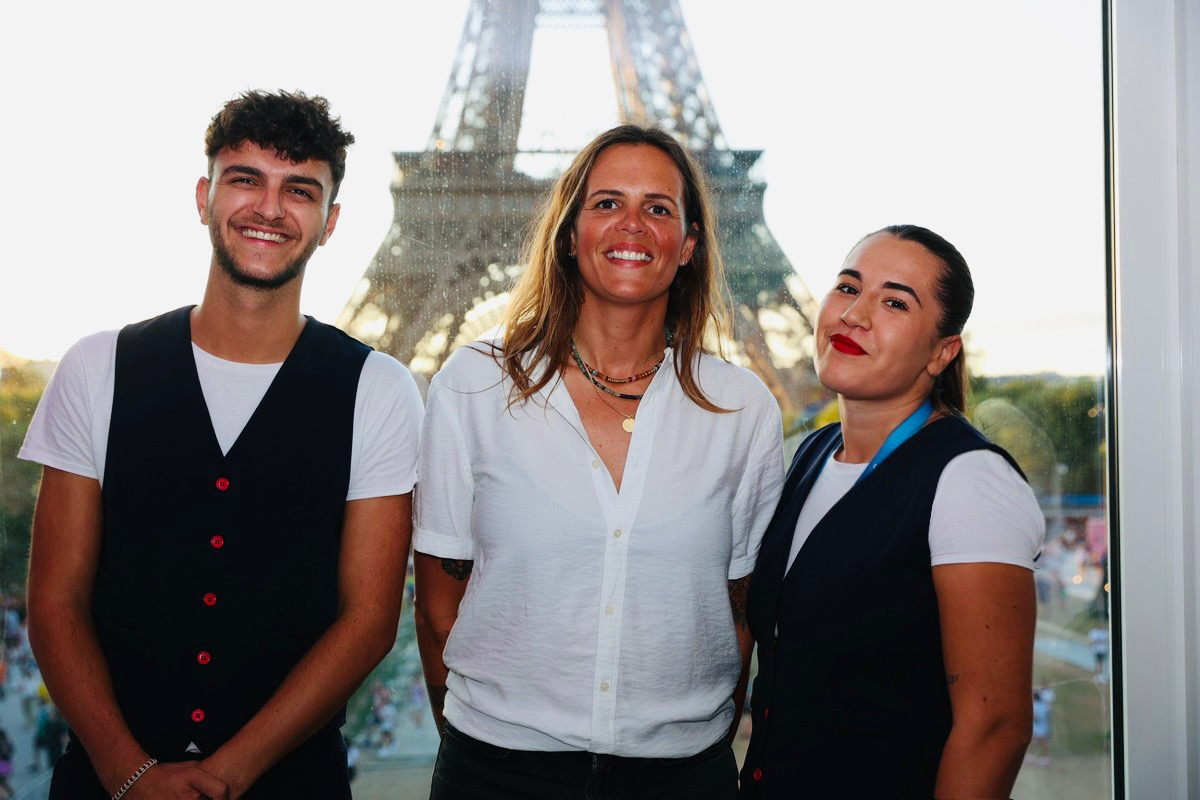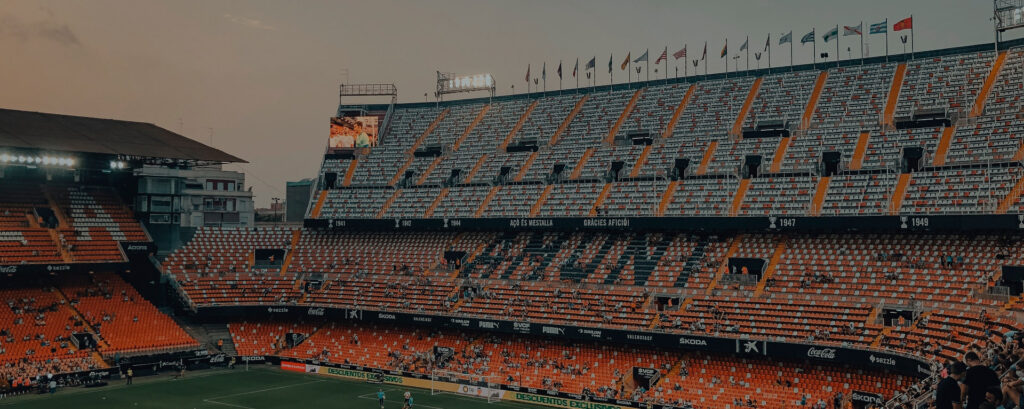Turn your passion
into your profession.
Our goal is to help you become an active professional in the sports industry by providing you with the tools and expertise to achieve it.
Through the academic year, we’ll help you build your resume as best as possible, and enhance your profile to respond to the current needs the industry has.

Career prospects
Check out some of the roles you can take on after studying some of our ESBS programs.
A sports manager is the professional responsible for the business, operational, and strategic aspects of sports organizations, teams, athletes or events. They work behind the scenes to ensure the smooth functioning and financial success of sports entities.
Key responsibilities:
- Event & Facility Management: Overseeing the planning and execution of sports events, leagues, and tournaments.
- Marketing & Sponsorship: Developing branding strategies, securing sponsorships, and managing media rights.
- Athlete representation: Negotiating contracts, handling endorsements, and ensuring athlete well-being.
- Financial & Legal Oversight: Managing budgets, sponsorship agreements, and regulatory compliance.
- Fan Engagement & Digital Strategy: Using digital media, social platforms, and data analytics to enhance fan experience.
- Governance & Compliance: Ensuring adherence to league, federation, and ethical guidelines in sports organizations.
A sports marketing manager is a professional who develops and executes marketing strategies to promte sports teams, athletes, events, or brands. Their role blends traditional marketing, digital engagement, sponsrship management, and fan experience to drive revenue and brand awareness in the sports industry.
Key responsibilities:
- Brand Development & Positioning: Crafting and managing the identity of teams, leagues, and athletes to enhance visibility.
- Sponsorship & Partnerships: Securing and managing sponsorships, endorsements, and collaborations with brands.
- Fan Engagement & Community Building: Creating campaigns that connect with fans across digital and offline platforms.
- Content Creation & Social Media Strategy: Managing social media, video content, influencer partnerships, and storytelling.
A sports communication manager is responsible for managing and shaping the public image of sports organizations, athletes, teams, and events through media relations, digital content, and strategic storytelling. Their role is essential in maintaining strong relationships with fans, sponsors, and the press while ensuring brand consistency and reputation management.
Key responsibilities:
- Public Relations & Media Management: Acting as the bridge between sports organizations and journalists, handling press releases, interviews, and crisis mangement.
- Content Creation & Storytelling: Crafting compelling narratives through articles, videos, and social media to enhance engagement.
- Social Media & Digital Strategy: Managing social platforms, live coverage, and fan interaction in real time.
- Internal & External Communication: Coordinating messaging across teams, leagues, and stakeholders to maintain brand consistency.
A sports facilities manager is responsible for the operation, maintenance, and overall management of sports venues, ensuring they are safe, functional, and profitable. They oversee everything from scheduling events to facility upkeep, budgeting, and compliance with health and safety regulations.
Key responsibilities:
- Venue Operations & Maintenance – Ensuring that stadiums, arenas, training centers, and recreational facilities are well-maintained and meet safety standards.
- Event Planning & Scheduling – Coordinating sports events, tournaments, and training sessions while managing bookings and logistics.
- Budgeting & Financial Management – Managing expenses related to facility maintenance, staff, utilities, and upgrades.
- Health & Safety Compliance – Ensuring the facility meets all legal requirements, including fire codes, accessibility, and emergency planning.
- Sustainability & Energy Efficiency – Implementing eco-friendly practices such as energy-efficient lighting, water conservation, and waste management.
- Staff & Vendor Coordination – Overseeing facility personnel, including security, cleaning crews, groundskeepers, and third-party contractors.
- Fan & Athlete Experience – Enhancing the experience of visitors, athletes, and teams by ensuring top-quality amenities and services.
A player representative (also known as a sports agent or player manager) is responsible for managing the careers of professional athletes, negotiating contracts, securing sponsorships, and ensuring their clients’ long-term success both on and off the field. They act as intermediaries between players, teams, sponsors, and media.
Key responsibilities:
- Contract Negotiation – Securing the best possible deals for athletes with clubs, leagues, and sponsors.
- Sponsorships & Endorsements – Identifying and negotiating brand partnerships and commercial opportunities.
- Legal & Financial Advisory – Ensuring compliance with regulations, tax management, and financial planning for athletes.
- Career Planning & Transfers – Managing player transfers, career transitions, and post-retirement opportunities.
- Public Relations & Media Management – Handling athlete branding, image rights, and media interactions.
- Personal & Professional Support – Providing guidance on training, mental health, and personal development.
- Regulatory & Compliance Oversight – Ensuring athletes follow league rules, anti-doping policies, and ethical standards.
A club manager in the sports industry is responsible for overseeing the daily operations, financial performance, and strategic direction of a sports club. They ensure the smooth functioning of the club by managing teams, staff, budgets, facilities, and fan engagement while aligning with the club’s long-term goals.
Key responsibilities:
- Team & Staff Management – Overseeing coaches, support staff, and administrative personnel to ensure smooth club operations.
- Financial & Budget Management – Managing sponsorship deals, ticket sales, merchandise, and operational expenses.
- Player & Athlete Development – Coordinating recruitment, contracts, and player welfare to build a competitive team.
- Marketing & Fan Engagement – Driving membership growth, social media presence, and community involvement.
- Sponsorship & Commercial Partnerships – Securing funding through brand partnerships, broadcasting rights, and local business collaborations.
- Facility & Matchday Operations – Ensuring stadiums, training centers, and matchday logistics run efficiently.
- Governance & Compliance – Ensuring the club adheres to league regulations, financial fair play, and ethical guidelines.
A sports business developer is responsible for identifying and creating new revenue opportunities, partnerships, and market expansions within the sports industry. They play a key role in driving growth for sports organizations, teams, leagues, and brands by developing commercial strategies, securing sponsorships, and expanding into new markets.
Key responsibilities:
- Sponsorship & Partnership Development – Identifying and negotiating deals with brands, media companies, and sponsors.
- Revenue Generation & Commercial Strategy – Developing business models to increase ticket sales, merchandising, and broadcasting rights.
- Market Expansion & Internationalization – Exploring new markets for leagues, teams, and events to grow global reach.
- Networking & Relationship Management – Building strong connections with stakeholders, investors, and industry leaders.
- Innovation & Digital Transformation – Leveraging new technologies like AI, blockchain, and NFTs to enhance sports business models.
- Event & Hospitality Business Growth – Expanding premium experiences, VIP hospitality, and fan engagement activations.
- Data-Driven Decision Making – Using analytics to identify trends, consumer behavior, and business opportunities.
A sports internationalization manager is responsible for expanding the global reach of a sports organization, team, or league. Their main goal is to develop strategies that help brands enter and grow in new international markets through partnerships, fan engagement, and localized marketing efforts.
Key responsibilities:
- Global Market Expansion – Identifying opportunities for leagues, teams, or events to grow in new regions.
- Localization & Cultural Adaptation – Adapting branding, content, and marketing strategies to fit different markets.
- International Sponsorship & Partnerships – Establishing collaborations with global brands, broadcasters, and federations.
- Fan Engagement in New Markets – Developing strategies to attract and engage international audiences through digital content, activations, and events.
- Broadcasting & Media Rights Distribution – Negotiating TV and digital streaming deals to increase global viewership.
- International Events & Preseason Tours – Organizing friendly matches, training camps, and tournaments in key international markets.
- Regulatory & Legal Compliance – Ensuring operations align with local sports laws, business regulations, and governance structures.
A sports human resources (HR) manager is responsible for managing the people and talent within a sports organization, ensuring that teams, staff, and executives operate efficiently and in alignment with the organization’s goals. They oversee recruitment, employee relations, performance management, and compliance while fostering a strong organizational culture.
Key responsibilities:
- Talent Acquisition & Recruitment – Hiring coaches, athletes, administrative staff, and executives for sports organizations.
- Employee Development & Training – Providing professional growth opportunities for staff, including leadership programs and upskilling initiatives.
- Performance Management & Retention – Evaluating and enhancing employee and athlete performance through feedback, rewards, and motivation strategies.
- Diversity, Equity & Inclusion (DEI) – Implementing policies to promote inclusivity and equal opportunities within sports teams and organizations.
- Compliance & Labor Regulations – Ensuring adherence to employment laws, contracts, and industry-specific regulations (e.g., athlete rights, collective bargaining agreements).
- Workplace Culture & Well-Being – Fostering a positive, high-performance culture while managing work-life balance, mental health, and employee engagement.
- Conflict Resolution & Mediation – Addressing disputes between players, coaches, or staff to maintain a professional and cohesive work environment.
A sports data analyst is responsible for collecting, analyzing, and interpreting data to provide insights that help improve team performance, enhance fan engagement, optimize business strategies, and inform decision-making across various areas of the sports industry. Their role involves working with large sets of data, often utilizing advanced analytics, machine learning, and statistical modeling to draw meaningful conclusions.
Key responsibilities:
- Performance Analysis – Analyzing player and team performance data (e.g., player statistics, game results, training data) to improve strategies and tactics.
- Scouting & Recruitment – Using data to evaluate potential recruits and make informed decisions on player acquisitions or trades.
- Game Strategy Development – Providing coaches with data-driven insights to design game plans, predict opponent strategies, and optimize team performance.
- Fan Engagement & Experience – Analyzing fan data (social media, ticket sales, viewing behavior) to understand audience preferences and improve marketing campaigns.
- Business & Revenue Analytics – Analyzing ticket sales, merchandise purchases, sponsorship deals, and media rights to drive revenue growth and improve business strategies.
- Injury Prediction & Prevention – Using data on player health, training loads, and injury history to predict and prevent injuries.
- Advanced Metrics & Statistical Models – Developing new performance metrics (e.g., expected goals in soccer or player efficiency ratings in basketball) and statistical models for deeper insights into the game.
- Visualizing & Reporting Data – Presenting complex data through easy-to-understand dashboards, charts, and reports to coaches, executives, and other stakeholders.
Work placements
Our team is actively looking for available opportunities for you to intern and work within the sports industry with companies and events that will help you to consolidate all the knowledge acquired in our programmes, to find the job you are looking for, the experience you need, and to grow alongside talented professionals.
80%
Of our students get internships in companies.
99%
Of our students feel prepared to work in a professional capacity.
+80
Partner companies
Volunteer opportunities
You’ll have the opportunity to volunteer in different sporting events throughout your program. This will help make your experience as complete as possible.
Through volunteering, we develop many skills: networking, experience, knowledge, collaborative synergies, etc.


Job vacancies
Our team is actively searching for open job opportunities for our students and alumni. For more information please reach out to your Academic Coordinators who will be able to put you in contact with the person in charge of this area.


